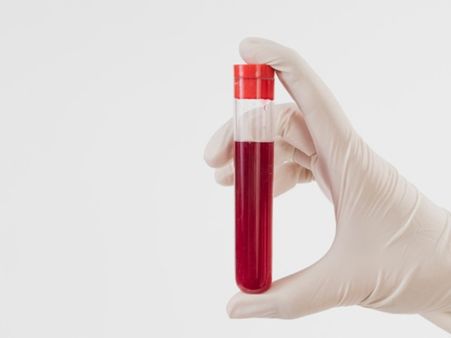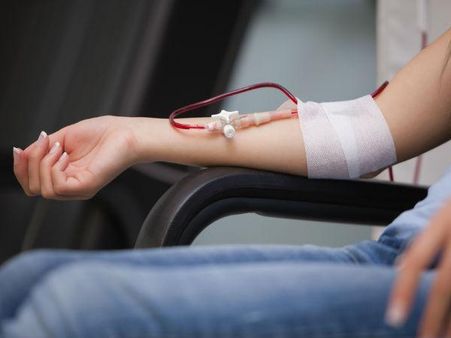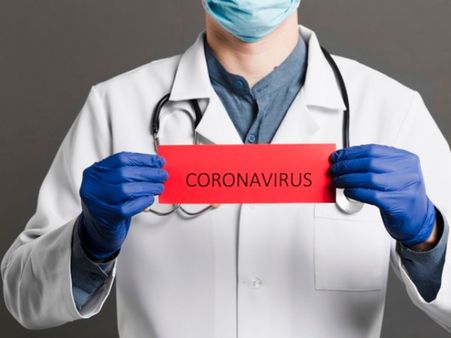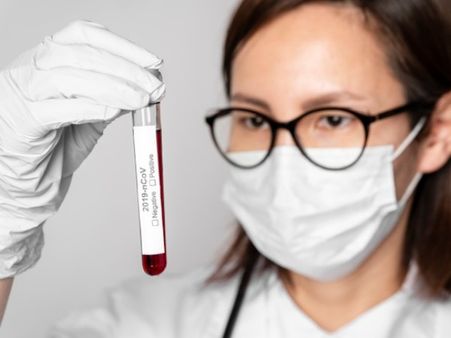Just In
- 5 min ago

- 32 min ago

- 3 hrs ago

- 7 hrs ago

Don't Miss
- Sports
 Hardik Pandya bystander as Akash Madhwal takes input from Rohit Sharma before bowling final over vs Punjab
Hardik Pandya bystander as Akash Madhwal takes input from Rohit Sharma before bowling final over vs Punjab - Technology
 Google Maps Introduces Eco-Friendly Commuting Options: All You Need to Know!
Google Maps Introduces Eco-Friendly Commuting Options: All You Need to Know! - Movies
 Heeramandi Release: Sanjeeda Shaikh Offers Glimpse Of The Enigmatic Waheeda
Heeramandi Release: Sanjeeda Shaikh Offers Glimpse Of The Enigmatic Waheeda - Finance
 Inox Wind Secures Repeat 210 MW Order From Hero Future Energies
Inox Wind Secures Repeat 210 MW Order From Hero Future Energies - Automobiles
 Sany India Introduces SKT105E: An Electric Dump Truck
Sany India Introduces SKT105E: An Electric Dump Truck - News
 Bengaluru Park Tragedy: Mother Avenges Daughter's Killer After He Stabs Her To Death
Bengaluru Park Tragedy: Mother Avenges Daughter's Killer After He Stabs Her To Death - Education
 Jharkhand Board Class 10th result 2024 is OUT; Know steps to check the result
Jharkhand Board Class 10th result 2024 is OUT; Know steps to check the result - Travel
Telangana's Waterfall: A Serene Escape Into Nature's Marvels
Coronavirus: Can A Survivor’s Blood Help Fight The Virus In Another?
According to recent reports, the FDA is working on a treatment for the coronavirus infection with blood from recovered patients.

As of today, there are 382,750 coronavirus cases with 16,578 deaths. On a hopeful note, 102,522 have recovered.

Not A New Method, But A Very Old One
According to a team of researchers from Scripps Research and UC San Diego, people who have recovered from the coronavirus are required for blood donation because there is a possibility of using blood plasma donated by recovered coronavirus patients as a promising short-term treatment for the virus [1].
The researchers pointed out that this method of using the blood of survivors to fight the virus in people who have been tested COVID-19 positive is not a new measure but something that had been followed in the medical world for years.

Antibodies Keep You Healthy
Antibodies are protein that is required by your body, to keep you healthy [2]. Acting as shields against diseases, the antibodies identify and attempt to neutralise harmful viruses and bacteria entering your body.
The principle is that when pathogens such as the viruses enter your body, the immune system produces antibodies that attach to the pathogens and destroy them[3]. Once recovered, those antibodies remain circulating in a person's blood, for months to years. Therefore, when the antibodies of a survivor are transferred to that of the infected person, they can help the immune system fight off the virus [4].
According to health experts, "In the midst of the COVID-19 pandemic with no vaccine or antiviral drug coming soon, antibodies from recovering patients could provide a 'stopgap' measure" [5].
"In addition to public health containment and mitigation protocols, this may be our only near-term option for treating and preventing COVID-19," they added.

Blood Donors Wanted
The study, which is undergoing currently, is assimilated to be an effective way of saving the lives of people affected by the coronavirus. The scientists are looking for blood from COVID-19 survivors who are willing to donate blood that would be screened for antibodies capable of fighting the virus [6].
According to WHO health experts, "drug-based antibodies are used to treating everything from cancer to autoimmune diseases to blood clots. We're particularly interested in finding blood donors who have been recovered from the coronavirus for a month or two. Antibodies tend to improve with time" [7].
The Scripps Research-UC San Diego team only needs five to 10 COVID-19 survivors to get enough blood to search for useful antibodies, but as the team reported, findings donors is not an easy task.

However, Limitations Are Endured
Although the group of researchers have reached almost close to a solution, they are yet to produce a test that can definitively determine if a person had COVID-19 and survived it, which poses as a limitation for the effective execution of the study.
"We can isolate the antibodies in a matter of days and show if they are effective within days or weeks, but producing them in large amounts is harder. We need the pharmaceutical industry for that. It would take months to get enough antibodies to treat large numbers of people. The antibodies wouldn't be available to help with what's going on right now" [8].
"But sooner, the better" added the team.

Who Are Not Eligible For The Vaccine?
The world as a whole is waiting for a vaccine against coronavirus but even when it arrives, not everyone will benefit. Individuals with a weak immune system, such as the elderly and those with HIV, may not be eligible for the vaccine.
Also, the treatment is not without risks as there is the risk of giving a patient the wrong type of blood or inadvertently transmitting other pathogens in a transfusion. But, safety advancements over the past two decades assure the avoidance of risks.
An FDA spokesman said, "Until more effective drug treatments are ready, this might be our best option. We're working around the clock on this, dozens of us across the country, many of us working from our homes and through the weekends, because we don't have time to spare."

On A Final Note…
Currently, there are no vaccines for coronavirus infection. Until more effective drug treatments are ready, this is the best option of a cure, say health experts.
-
 healthCOVID Surge In India: Do You Need A COVID-19 Booster Shot?
healthCOVID Surge In India: Do You Need A COVID-19 Booster Shot? -
 disorders cureCommon COVID Symptoms In Fully Vaccinated Individuals: What You Should Know
disorders cureCommon COVID Symptoms In Fully Vaccinated Individuals: What You Should Know -
 wellnessMild COVID Linked To Life-Threatening Blood Clots, Increased Risk Of Cardiovascular Disease; Study
wellnessMild COVID Linked To Life-Threatening Blood Clots, Increased Risk Of Cardiovascular Disease; Study -
 wellnessCOVID-19 Variants In India: New COVID Variant May Pose Threat To Elderly People
wellnessCOVID-19 Variants In India: New COVID Variant May Pose Threat To Elderly People -
 basicsCovid-19 Linked To Early Onset Of Periods: What You Need To Know
basicsCovid-19 Linked To Early Onset Of Periods: What You Need To Know -
 wellnessCOVID XBB Variants Of Omicron In India: What You Should Know
wellnessCOVID XBB Variants Of Omicron In India: What You Should Know -
 disorders cureNew Omicron Subvariant BQ.1 Detected In Maharashtra: What You Should Know
disorders cureNew Omicron Subvariant BQ.1 Detected In Maharashtra: What You Should Know -
 disorders cureOmicron BF.7 In India, Risk Of Fresh Wave During Diwali: What You Should Know
disorders cureOmicron BF.7 In India, Risk Of Fresh Wave During Diwali: What You Should Know -
 wellnessCoronavirus Residues Might Be Causing Long COVID: New Study
wellnessCoronavirus Residues Might Be Causing Long COVID: New Study -
 wellnessCentury-Old TB Vaccine Could Be Effective Against Covid-19 And Other Infections: New Study
wellnessCentury-Old TB Vaccine Could Be Effective Against Covid-19 And Other Infections: New Study -
 disorders cureCovid-19 Patients At Risk Of Neurological & Psychiatric Conditions Two Years After The Infection: New Study
disorders cureCovid-19 Patients At Risk Of Neurological & Psychiatric Conditions Two Years After The Infection: New Study -
 wellnessCOVID In Smokers: An Expert Explains
wellnessCOVID In Smokers: An Expert Explains


 Click it and Unblock the Notifications
Click it and Unblock the Notifications



